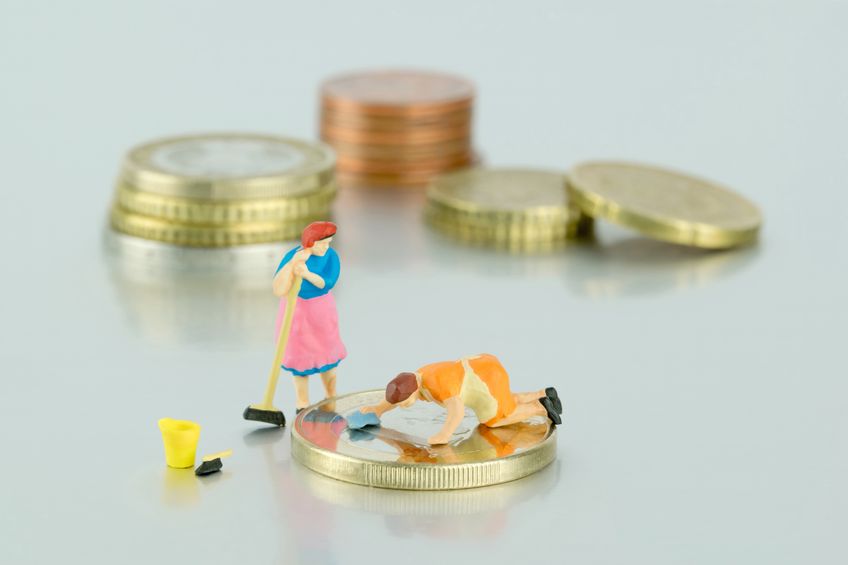The ‘wage debate’ gains momentum in the EU

The discussion on wages seems to be gathering momentum in Brussels.
At the European Commission’s conference on the European Pillar of Social Rights, Commission President Jean-Claude Juncker anticipated that a European Union proposal on minimum wage has to be expected –this was one of the very few concrete elements mentioned in his speech.
At the same time, key stakeholders are taking action, including the European Confederation of Trade Unions (ETUC), which has just launched its campaign for a pay rise for workers throughout Europe to drive economic growth and tackle inequality.
The most recent data and academic research seem to justify the call for urgent action in this field. Wages have not kept pace with productivity for decades and their proportion of Gross Domestic Product is falling compared to profit, shares and capital income. This means that a reverted redistribution of wealth has been occurring in our societies in the recent decades.
In the same time the Commission released its winter 2017 economic forecasts that point to a rise in nominal wage growth, the Dublin-based EU agency for the Improvement of Living and Working Conditions (Eurofound) published its 2017 report on statutory minimum wages in the EU, in which it described a less rosy picture.
The situation concerning minimum wages varies greatly between EU countries in terms of level, coverage and growth dynamics, and while it is true that the growth of nominal minimum wages this year has accelerated compared with last year, that of real ones – the one that really matters to people as it takes into account the cost of living – is far less positive.
At an Expert Workshop on Living Wages in Europe organised by the European Trade Union Institute (ETUI) that I recently attended it was shown that in some Eastern countries wages in the garment industry are even lower than in China. This means that the double digit increases we see in some Eastern European countries, while of course a positive evolution, are more of a statistical effect due to the scandalously low level of wages for many workers in these countries, and will translate only in a few cents increase in their monthly pay slip – far below what it is needed.
At the same time, as indicated by Eurofound, over the period 2010-2017 real minimum wages have decreased in some other countries such as Belgium, the Netherlands and Greece, where the purchasing power of workers earning the minimum wage diminished by almost one-quarter (-24.3%).
At Social Platform we believe that decent wages are a fundamental dimension of quality employment – together with job security, access to social security, work-life balance, progression in employment and health and safety – and we have made the progressive introduction of adequate minimum wages for all workers (including youths, migrants and part-time workers) one of our fundamental calls in the framework of our campaign on EU social standards and our advocacy work on the European Pillar of Social Rights.
Normative, social and economic reasons justify our call.
Adequate remuneration is identified as a basic social right in international and regional treaties (such as the Universal Declaration of Human Rights; the International Covenant on Economic, Social and Cultural Rights; the European Social Charter and the EU Charter of Fundamental Rights).
It is also needed to close the gender pay gap, fight in-work poverty and ensure adequate social protection, as benefits and income support schemes are usually linked to wage levels.
It is also a pressing economic necessity. Economists and even some business leaders have started realising that by strengthening purchasing power, pay rises are an engine of demand, job growth and economic and social progression across Europe.
Against the background of an increasingly digitalised economy, adequate remuneration and access to social protection for all are key dimensions to ensure a just economy, and this is what we will continue to promote at Social Platform, ready to engage with all actors that are interested in pursuing the same goals.













































